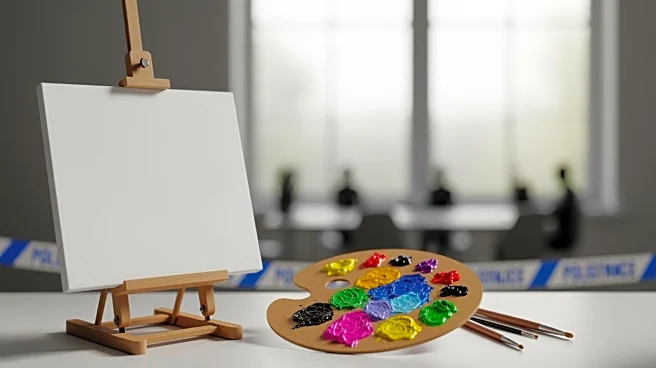What's Happening?
Tunisian director Kaouther Ben Hania's film, 'The Voice of Hind Rajab,' premiered at the Venice Film Festival with significant support from Hollywood figures Joaquin Phoenix and Rooney Mara. The film, a hybrid documentary drama, centers on the real-life emergency calls of six-year-old Hind Rajab, who was trapped in a car in Gaza after Israeli tank fire killed her family. The film reconstructs the Red Crescent call center, using Hind's actual recorded voice. The premiere was marked by a somber atmosphere, with attendees wearing black and carrying a photo of Hind Rajab. The film has gained attention with the involvement of executive producers like Brad Pitt, Alfonso Cuarón, and Jonathan Glazer, which is expected to boost its reach, particularly in the U.S.
Why It's Important?
The involvement of high-profile Hollywood figures in 'The Voice of Hind Rajab' highlights the film's potential impact on global audiences, particularly in raising awareness about the humanitarian crisis in Gaza. The film's narrative, centered on the tragic story of a young girl, serves as a poignant reminder of the ongoing conflict and its devastating effects on civilians. The backing by influential producers could facilitate wider distribution and viewership, potentially influencing public opinion and policy discussions related to the Israeli-Palestinian conflict. This support underscores the power of cinema as a tool for social change and advocacy.
What's Next?
The film's premiere at the Venice Film Festival positions it for potential accolades, with the festival winners to be announced on September 6, 2025. The involvement of prominent producers may lead to further screenings and discussions in international film circuits, increasing its visibility. The film's reception could prompt further engagement from the film industry in addressing global humanitarian issues. Additionally, the narrative's impact might inspire similar projects that aim to give a voice to marginalized communities affected by conflict.
Beyond the Headlines
The film's focus on a child's perspective in a war zone adds a unique and emotional dimension to the discourse on the Israeli-Palestinian conflict. It challenges audiences to confront the human cost of war and the resilience of those affected. The use of real emergency call recordings raises ethical considerations about storytelling and representation in documentary filmmaking. The film's success could influence future projects to adopt similar approaches in highlighting underrepresented voices in global conflicts.









